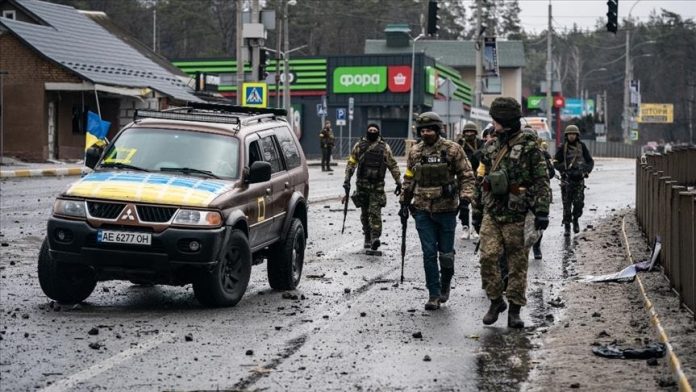Several African countries have professed neutrality in Russia’s war on Ukraine, avoiding taking sides for fear of upsetting allies, leading African experts told Anadolu Agency.
“Many countries on the African continent source their military equipment from Russia and may not want to condemn the invasion of Ukraine, while the majority of these countries also belong to the Non-Aligned Movement,” Sultan Kakuba, a political scientist at Uganda’s Kyambogo University, told Anadolu Agency over the phone.
The Non-Aligned Movement, currently a forum of 120 developing countries, was formed with the participation of 29 nations in 1961 when the world began to polarize between East and West. The countries are committed to keeping their foreign policy non-aligned and not participating in military and political blocs. They also stress the need for peaceful coexistence based on the principles of independence and equality.
Kakuba said Africa’s position on the conflict was made public last week when the UN voted on Russia’s war on Ukraine.
Several dozen African countries, including South Africa, abstained from voting, while six did not participate in order to avoid taking sides.
“Although some countries are taking a position of neutrality, this conflict will eventually divide Africa into two blocks. One in favor of the invasion of Ukraine, and the other against Russia,” he warns.
However, some argue that failing to condemn Russia’s war and aggression against Ukraine does not imply that they have chosen the side of the aggressor.
“When an elephant has its foot on the tail of a mouse and you say you’re neutral, it will not appreciate your neutrality,” Abdirazak Mohammed, a university student in Johannesburg, told Anadolu Agency.
Impact on Africa
“We expect this conflict to have various impacts for the continent, but this will depend on how much a country does trade with Russia or Ukraine,” Mustafa Mheta, a senior researcher at the Media Review Network, a Johannesburg-based think tank, told Anadolu Agency.
Mheta worries that the entire continent will be collectively affected if oil prices continue to rise as a result of the war.
Mheta’s views are echoed by Kakuba, who says that “the spillover effect from the Russia-Ukraine conflict will make African economies afflicted by the pandemic suffer even more.”
He said that as long as the conflict continues, African economies will not be safe as oil prices shoot up, leading to rising commodity prices and inflation.
“We should pray for a dialogue — In the contemporary world, dialogue should be the best option, not military intervention,” he noted, saying he fears that this conflict can easily escalate to a third world war if a solution to end it is not found soon, as countries around the world will be divided into blocs.
Racial profiling
The academics also condemned the Ukrainian security forces for reportedly mistreating African nationals fleeing Ukraine through racial profiling and by preventing them from boarding trains to cross into neighboring countries.
“It is sad that Africans continue to be racially discriminated in Europe, despite the existence of international human rights agencies. This is not the first time that Africans have been racially targeted,” Kakuba said.
Last week, the African Union decried racial discrimination, saying all people have the right to cross international borders during times of conflict and that Africans stranded in Ukraine should have the same right to do so, regardless of their nationality or racial identity.
Russia’s war on Ukraine has been met with outrage from the international community, with the European Union, UK, and US, among others, imposing a range of economic sanctions on Moscow.
At least 364 civilians have been killed and 759 others injured in Ukraine since Russia launched a war against the Eastern European country on Feb. 24, according to UN figures, with the real toll feared to be higher.
More than 1.5 million people have fled Ukraine to neighboring countries, according to the UN refugee agency.
Source Anadolu Agency

